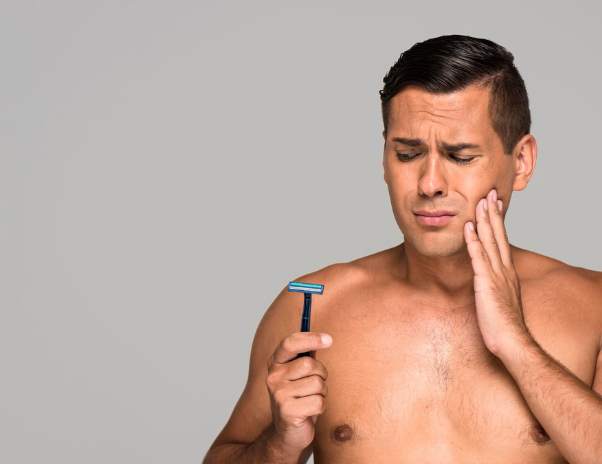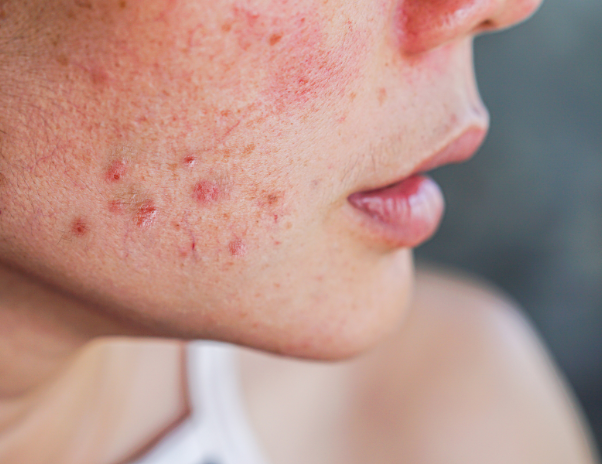
Posted date on Jun 15, 2020
Monsoon Skin and Hair Care
As we bid adieu to the summer, we welcome what is possibly everyone’s favorite season, the monsoons. The monsoons have a vibe that induces the idea of self care. One that encourages you to stay home and enjoy the cool atmosphere it brings. But with all its beauty and serenity, the monsoons can possibly wreak havoc on your health due to the high humidity that it brings along with it. This high humidity can not only cause oily skin but also, dry and frizzy hair.
Apart from the humidity, exposure to rain and rain water can cause further damage to your skin and hair. Rain water has a certain composition to it and can usually be somewhat acidic in nature. This can lead to skin and hair issues such as rashes, eczema, dandruff and scalp/skin fungal infections. In light of these issues that may begin to have their ill effects on your skin and hair health, this blog is here to detail the appropriate means of skin and hair care you need this monsoon.
Skin Care
Depending on the type and quality of your skin, you may be susceptible to a slew of health conditions. Providing appropriate care is best done in order to prevent damage to skin rather than treat it after the damage is done.
1. Follow A Balanced Diet:
A good skin care regimen must include a proper diet and a set of products to keep your skin clean and healthy. However, if we strike at improving the condition within our constitution, the prevention of skin conditions may ease. For this, make an attempt to incorporate Vitamin A and C rich foods in your diet. Following a Low carb High protein diet can reduce breakouts and even strengthen skin to more harmful effects of the monsoons. Don’t forget to stay hydrated. Keeping your skin hydrated is very important. Having a steady fluid intake of 3 to 4 litres of water per day maintains pH levels in the blood that minimize the risks of breakouts and oily skin. This is also applicable to ensure healthy hair.

2. Bathe regularly and stay clean:
Due to the high humidity we may experience a steady susceptibility to sweat profusely in this climate. Sweat, coupled with the high moisture content in the environment can allow the impurities and dirt on the skin to fester and possibly lead to other problems like fungal infections, ringworm, itchy skin, etc. If there is such a condition you are trying to resolve, be sure to consult your dermatologist, as it requires specific medical treatment at the earliest. It is necessary therefore to bathe at least twice a day, especially if work and commute have prominence in your day to day activities.
3. Cleansing, Toning, Moisturizing:
These three steps are very important in monsoons weather conditions, since the high humidity can dry out your skin and increase its oiliness. If you have persistent oily skin, I recommend using a mild cleanser to initiate the removal of the dead skin and dirt. A soap free cleanser and scrub is good to keep your skin moist. Avoid using makeup in this type of weather as its non waterproof nature can be a possible cause for further breakouts.
Toning is just as necessary for your skin. Using anti-bacterial toners can help against the various germs that are present in the monsoon. Some alcohol toners can be used for getting rid of germs and as a defence against the high humidity that is known to open up pores.
For dry skin, moisturization is recommended at least 2 times a day. It is best if you use a moisturizer and cleanser prescribed to you by a dermatologist, since different skin types and skin compositions may require very specific means to treat their innate conditions.
4. Sunscreen is your best friend:
Just because it’s cloudy, doesn’t mean you don’t need sunscreen. Rainy days can bring you harmful UV rays as well. Remember that UV rays are a constant source of skin hazards. Using a prescribed Sunscreen twice or thrice a day can not only help protect you against the harmful radiation in the monsoons, but also protect against more dangerous and possibly malignant skin conditions.

Hair Care
Though the methodology behind proper, methodical hair care is different from that of skin care, it is surprising how many similarities we can find between the ill effects of the monsoons in the two. Needless to say that much like your skin, your hair is highly prone to damage in the monsoons.
1. Dandruff and Scalp Infections:
During the monsoons, being exposed to the rain leaves your hair damp and can cause your skin and scalp to remain wet for a long time. This is a calling card to various fungal and hair infections. While dandruff is something that blurs the line between skin or hair conditions it is a sign of poor skin and hair health and can occur in any kind of weather. During the monsoons however, this can be credited to the humidity of the season making this condition worse. In these cases, using a medically appropriate shampoo and hair oil that relieves itchiness and minimizes flakiness of hair is suggested.
2. Frizziness, Dryness and Dullness:
As much as we all love getting wet in the rain. It is important to realize that the harmful effects of rainwater can rob your hair off its natural strength and reduce the moisture content of hair if left damp for a long time. This essentially plays a role in making your hair frizzy and dry which then leads to severe breakage of hair strands and dullness in quality and volume of hair. It is therefore advised to stay out of rain water and carrying protective gear such as umbrellas and raincoats is recommended on your daily commutes.

3. Hair Fall:
Rain water can be a contributor not only to hair thinning and breakage but also to loosen the roots of hair on the scalp. This weather is also highly inappropriate to try out new styling trends as most styling trends tend to be done when hair is damp. The issue with this is that damp hair is hair that has inherently lost moisture, and therefore very prone to breakage. Therefore, it is recommended that you dry your hair with a towel as gently as possible and avoid hair dryers since they tend to hair thinning and hair fall. It is also a good idea to find a mild hair serum that aids in strengthening your hair and use a gentle shampoo and conditioner as far as possible.
With due consideration given to the health risks that you may face in the monsoons, it is fair to say that this weather is to be enjoyed albeit quite a lot more responsibly, in order to maintain your hair and skin at its best and I hope these tips help you out in the monsoons.
If you have a discerning skin or hair issue, do contact your dermatologist, for a consultation as they are the best confidants to approach in cases such as these. If you are residing in the Whitefield area in Bangalore, pay us a visit at Dr. Divya’s Skin and Hair solutions to find the best treatment that suits you.




